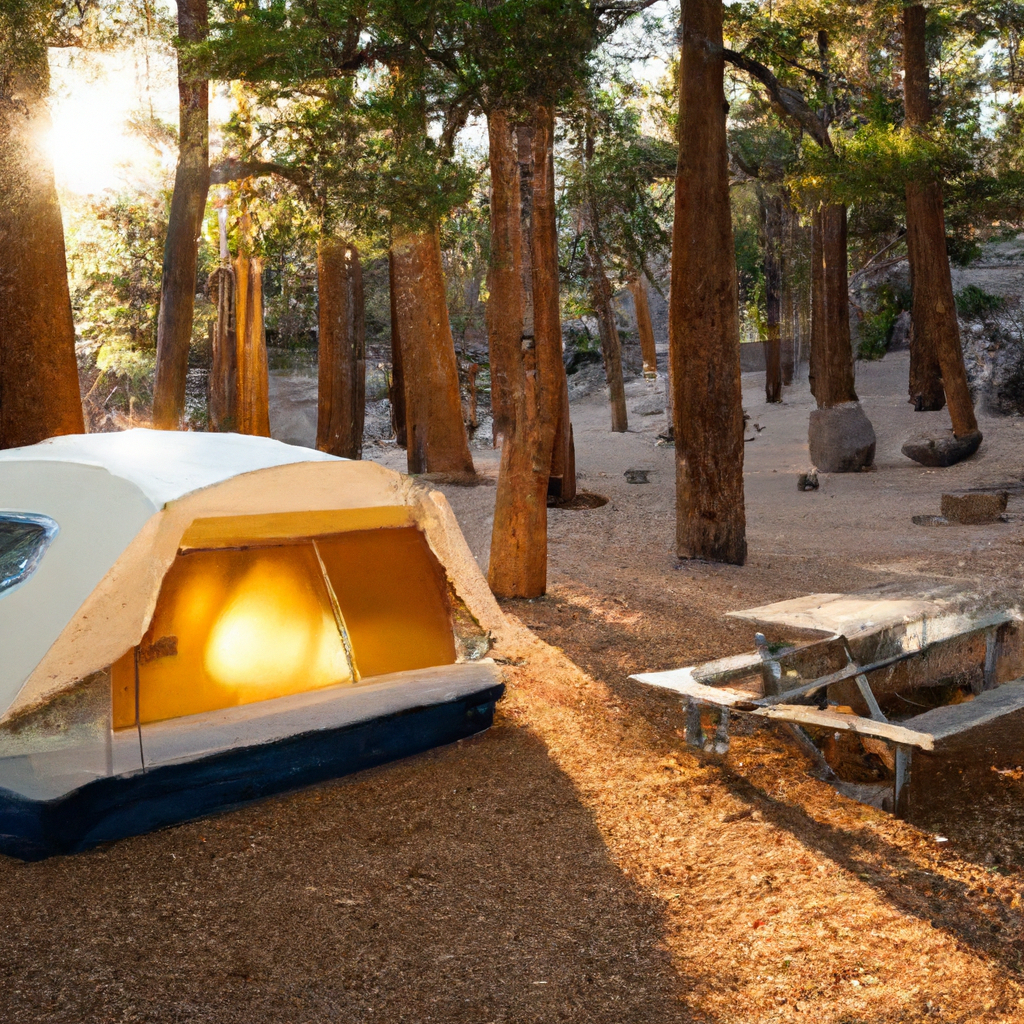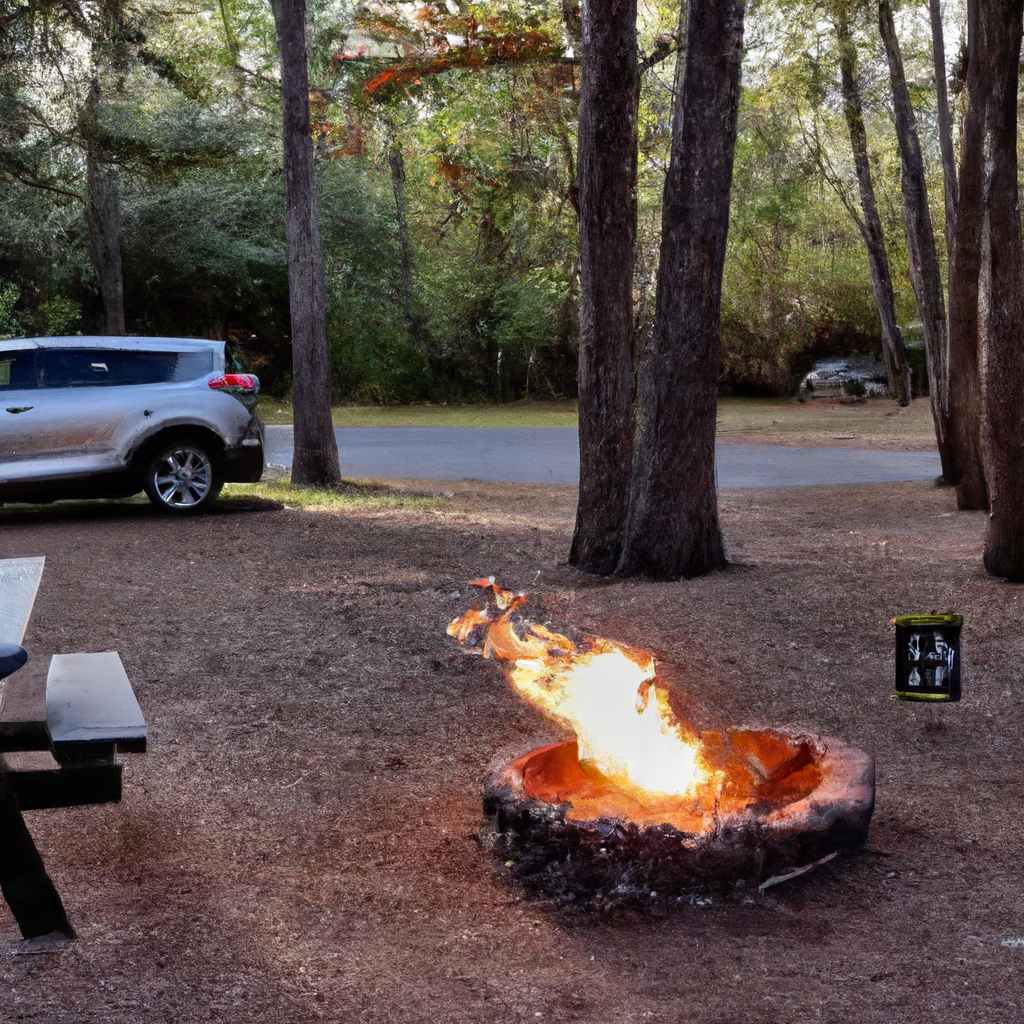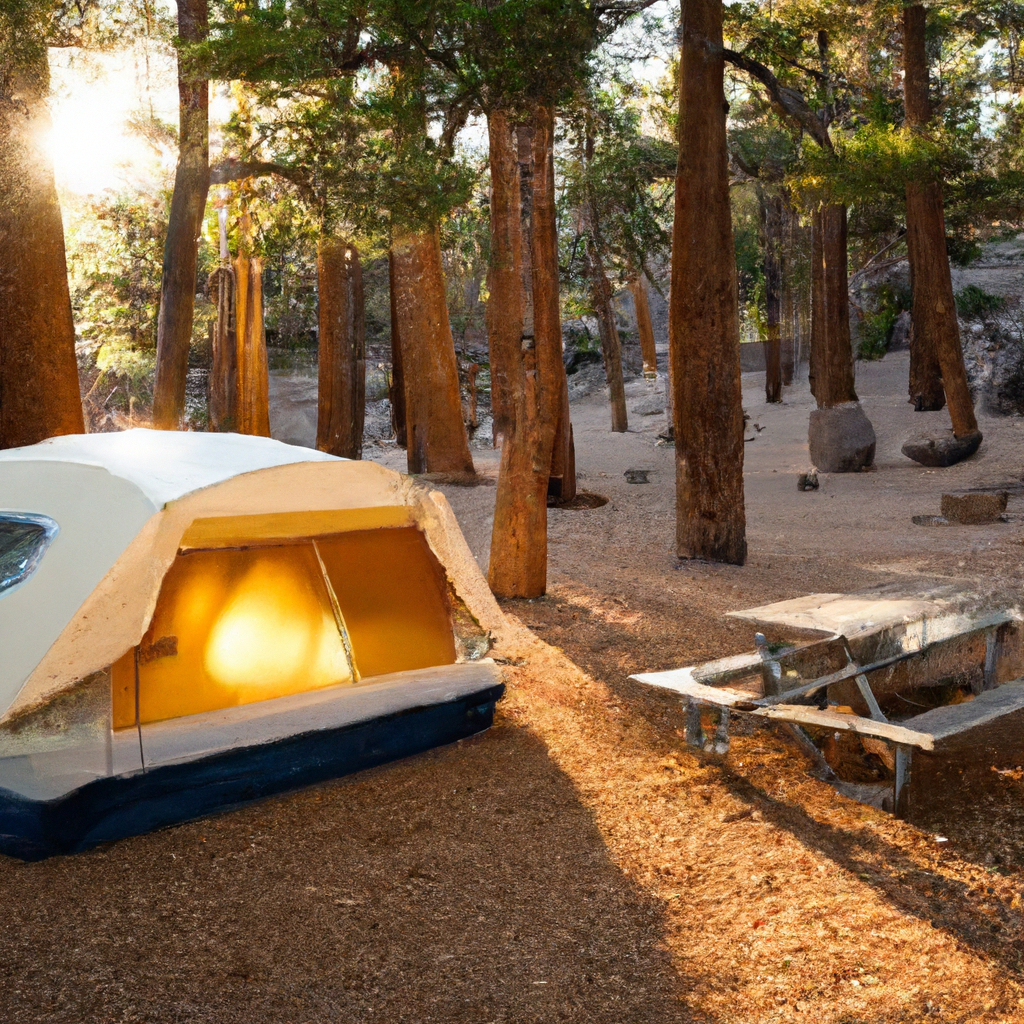Planning a camping trip to an established campground? It’s essential to familiarize yourself with the rules and etiquette to ensure a smooth and enjoyable experience. From respecting quiet hours to disposing of trash properly, this article will guide you through the do’s and don’ts of camping in established campgrounds. So, grab your camping gear and get ready to make the most of your outdoor adventure while being a considerate and responsible camper.
General Rules and Etiquette
Camping in established campgrounds can be a wonderful way to enjoy the great outdoors. However, it is important to remember that these campgrounds are shared spaces, and being respectful of others and the environment is crucial. By following these general rules and etiquette guidelines, you can ensure that everyone has a pleasant and enjoyable camping experience.
Reservations and Check-in Procedures
Making reservations before your camping trip is highly recommended. This not only guarantees that you have a designated campsite but also helps the campground staff manage the available spaces efficiently. By reserving your spot, you will save yourself the last-minute stress of finding an available site and allow the campground staff to provide you with relevant information, such as check-in procedures and any specific rules or regulations.
When you arrive at the campground, it is essential to follow the check-in procedures outlined by the staff. This usually involves registering at the campground office, providing necessary information, obtaining any permits or passes, and receiving instructions regarding the campground’s facilities and rules. By adhering to the check-in process, you can help maintain order and ensure a smooth camping experience.
Campsite Selection
Choosing an appropriate campsite is an important part of camping etiquette. Campgrounds often have designated camping areas, and it is crucial to respect these boundaries. Find a spot that is within the designated area and avoid encroaching on neighboring campsites. This will not only provide privacy but also prevent overcrowding and ensure a harmonious atmosphere.
Consideration for others also means being mindful of the proximity to amenities. If you have specific needs, such as being close to restroom facilities or having easy access to water sources, choose a campsite accordingly. However, it is important to balance your needs with the needs of others, so try to avoid settling too close to high-traffic areas to minimize disturbances for both yourself and your fellow campers.
Quiet Hours
Many campgrounds have designated quiet hours during which campers are expected to minimize noise to allow others to enjoy peace and tranquility. Understanding these quiet hours and respecting them is vital for maintaining a harmonious camping environment. Typically, quiet hours start in the late evening and continue until morning.
During quiet hours, it is crucial to minimize noise levels. Keep conversations quieter and avoid loud music or noisy activities that may disturb other campers. By being mindful of your noise level, you are showing respect for others and allowing them to enjoy the serenity of the campground.
Campfires and Cooking
Campfires are an integral part of the camping experience for many people. However, it is vital to prioritize fire safety when enjoying a campfire. Always follow any fire restrictions or guidelines provided by the campground staff. Make sure to keep your campfire within the designated fire ring or pit and never leave it unattended. When you’re done, ensure the fire is completely extinguished by dousing it with water and stirring the ashes until they are cool to the touch.
When it comes to cooking, be mindful of any restrictions or guidelines provided by the campground. Some campgrounds may allow open fires for cooking, while others may require the use of camp stoves or grills. Adhering to these guidelines helps protect the environment and ensures the safety of all campers.
Waste Management
Proper waste management is crucial for the preservation of the natural beauty of campgrounds and the protection of wildlife. When it comes to garbage disposal, use designated receptacles provided by the campground. Avoid leaving any trash or waste behind, and ensure that all garbage is securely tied in bags to prevent animals from scavenging.
Recycling practices are also encouraged in many campgrounds. Separate recyclable materials, such as plastic bottles, aluminum cans, and paper, from general waste and dispose of them in the appropriate recycling bins provided.
When it comes to greywater and sewage, follow campground guidelines regarding their disposal. Many campgrounds have designated dump stations or facilities for emptying portable toilets. It is essential to respect these guidelines to protect the campground’s water sources and ensure a clean and healthy environment for everyone.
Finally, follow the “Leave No Trace” principles, which emphasize minimizing your impact on the environment. This includes packing out all waste, not disturbing wildlife or vegetation, and leaving the campsite as you found it.
Pets and Wildlife
If you plan to bring pets to the campground, it is important to familiarize yourself with the pet policies. Many campgrounds have specific rules regarding pets, such as leash requirements or restrictions on certain breeds. Always keep your pet on a leash and under your control, ensuring the safety and comfort of both your pet and other campers.
Preventing wildlife interactions is crucial for both the safety of campers and the wellbeing of wildlife. Keep food securely stored in bear-resistant containers and avoid leaving food or garbage outside. Feeding wildlife is strictly prohibited, as it disrupts their natural behavior and can create dangerous situations for both the animals and humans.
Respecting habitat is another essential aspect of camping etiquette. Avoid damaging vegetation, disturbing nesting or burrowing areas, or collecting plants or rocks. By respecting the natural surroundings, you help preserve the beauty and integrity of the campground for future visitors.
Respect for Nature
Respecting nature goes beyond specific rules and etiquette. It involves being mindful of the impact we have on the environment and taking steps to minimize it. When hiking or exploring the campground, stay on designated trails to protect fragile ecosystems and prevent unnecessary damage to vegetation and wildlife habitats.
Protecting flora and fauna can also involve avoiding picking flowers or disturbing plants, respecting the natural balance of the ecosystem. Be cautious not to introduce invasive species by cleaning gear and equipment thoroughly before entering the campground.
Finally, minimize your impact on the environment by practicing the “Leave No Trace” principles. This includes disposing of waste properly, leaving natural objects where you find them, and minimizing any alterations to the campground. By adhering to these principles, you can help preserve the beauty and integrity of the campground for future generations to enjoy.

Campground Facilities
Campgrounds often provide facilities that make camping more comfortable and convenient. These facilities typically include restrooms and showers, water sources, electricity, and various campground amenities. It is important to use these facilities responsibly and with consideration for others.
Restrooms and Showers
Restrooms and shower facilities are essential amenities offered at campgrounds. Be sure to leave these facilities clean and tidy after use so that others can also enjoy a pleasant experience. Avoid monopolizing the showers or leaving personal items in shared spaces. By practicing good hygiene and being considerate of others, you contribute to a positive camping experience for everyone.
Water Sources
Water is a valuable resource in campgrounds, and it is important to use it responsibly. Follow any guidelines or restrictions regarding water usage provided by the campground. Be mindful of the amount of water you use, especially during times of drought or limited water availability. Avoid contaminating water sources by not washing dishes or personal items directly in the streams or lakes.
Electricity and Hook-ups
Some campgrounds offer electrical hook-ups for RVs or campers that require electricity. It is important to use these hook-ups responsibly and avoid overloading the system. Respect any rules or restrictions regarding electrical usage, such as not using high-powered appliances that may strain the electrical infrastructure. By being mindful of your electricity usage, you help ensure a reliable power supply for all campers.
Campground Amenities
Campgrounds often provide additional amenities such as picnic areas, playgrounds, or communal spaces. These amenities are meant to enhance the camping experience for everyone, so it’s important to use them respectfully. Clean up after yourself, avoid damaging or vandalizing any equipment or structures, and adhere to any posted rules or regulations. By treating these amenities with care, you help create a welcoming and enjoyable environment for all campers.

Emergency Preparedness
While we hope for the best during our camping trips, it is crucial to be prepared for emergencies. Familiarize yourself with the campground’s emergency procedures and know how to contact campground staff or emergency services in case of an emergency. It is also wise to have a basic first aid kit on hand and know how to administer basic first aid, such as treating minor cuts or burns.
Communication is key in emergency situations, so ensure you have a way to stay connected. Carry a charged cell phone or know the location of the nearest emergency phone if cell service is limited. Additionally, be aware of any potential natural hazards in the area, such as flash floods or wildlife encounters, and take appropriate precautions to ensure your safety and the safety of others.
By being prepared and knowledgeable about emergency procedures, you can help ensure the safety and well-being of yourself and your fellow campers.
Camping in established campgrounds offers a unique opportunity to connect with nature and enjoy the outdoors. By following these rules and etiquette guidelines, you can make the most of your camping experience while respecting the campground, other campers, and the environment. Remember to be considerate, responsible, and always leave the campground better than you found it. Happy camping!

